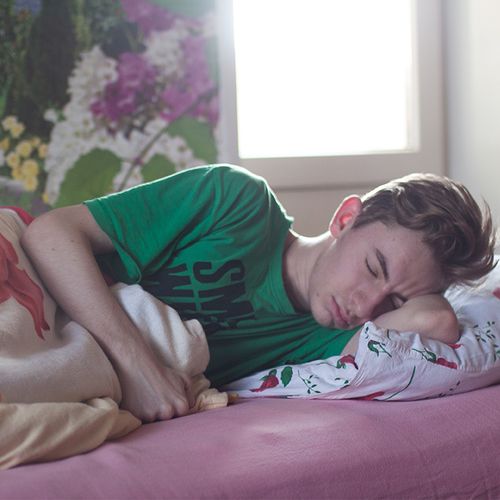If you're one of the 18 million Americans who have been diagnosed with moderate-to-severe sleep apnea, chances are your doctor has suggested that you try a continuous positive airway pressure, or CPAP (pronounced "SEE-pap", machine.
Problem: Many people complain that the CPAP face mask is too uncomfortable to wear and often causes problems such as mouth dryness.
Solution: There are now many ways to make CPAP treatment less uncomfortable-or, if necessary, you can use one of various alternative therapies that are effective when CPAP is not tolerated.
What Is Sleep Apnea?
Sleep apnea occurs when breathing temporarily stops multiple times during sleep. Symptoms may include snoring, gasping, choking and daytime drowsiness. At least 10% of adults over age 65 are believed to have the most common form, obstructive sleep apnea, though the majority of them don't know it. The condition affects men and women.
The Sleep Apnea Challenge
Sleep apnea frequently goes undiagnosed. Even though snoring is a telltale symptom in some sufferers, not everyone who snores has sleep apnea-and not everyone with sleep apnea snores.
Red flag: If you have chronic snoring loud enough to wake your bed partner, you may have sleep apnea.
Don't ignore this condition: If you have moderate-to-severe sleep apnea (20 or more interruptions in breathing per night), be sure to seek medical treatment. Sleep apnea causes severe sleepiness and has been linked to impaired cognitive function (including memory loss), elevated blood pressure, increased stroke and heart attack risk and a higher mortality rate.
CPAP—If You Can Tolerate It
Use of a CPAP machine is widely considered the most effective treatment for moderate-to-severe sleep apnea. If you're overweight, weight loss also helps.
CPAP increases the pressure of the air being breathed, which helps keep the airway open. The CPAP machine-about the size of a dictionary-pumps air into a hose that is connected to a face mask (nasal or full-face covering the nose and mouth). Modifications that make CPAP more user-friendly include…
- More comfortable mask designs are available in a variety of designs from Respironics ...ResMed...and Fisher & Paykel Healthcare, as well as from specialty manufacturers, such as Dreamweaver and CPAP Pro.
- Humidifying feature to fight mouth dryness—some CPAP machines are built with features to maximally humidify or to allow an external humidifier to be attached, while others come with an internal humidifier. Humidifying CPAP machines and attachments can be found at www.directbomemedical.com, 888-505-0212.
- Bilevel positive airway pressure (BiPAP and others) and C-Flex are modified versions of CPAP that reduce air pressure as the wearer exhales, which some patients find more comfortable. (CPAP provides constant and steady air pressure, whereas bilevel devices provide varying pressure) Bilevel machines cost more than those used for CPAP, starting at about $1,700 versus about $800.
New: CPAP can be modified with a breathing sensor called SensAwake that detects when the user's breathing pattern becomes irregular Cindicating partial wakefulness) and drops the pressure. The CPAP resumes full pressure only when regular breathing indicates the patient is asleep. CPAP with SensAwake is available from Fisher & Paykel Healthcare for $629.
*Dr. Rapoport has a financial interest in SensAwake.
CPAP Alternatives
If you still find CPAP too uncomfortable to use, consider…
- Oral appliances. These hinged mouthpieces, which are worn during sleep, pull the lower jaw (and base of the tongue) forward to keep the upper airway open. Oral appliances are typically custom-made by a dentist. The initial cost of an oral appliance (usually about $1,000) is similar to that of CPAP, but patients usually need a half dozen follow-up dentist visits to adjust the appliance.
- Nasal devices. Provent (Ventus Medical is a disposable device that's attached to the nostrils at night, then thrown away in the morning. The opening of the device narrows during exhalation, which increases pressure in the airway. It is believed that this makes the airway less prone to collapse. Provent, which must be prescribed by a doctor, was recently approved by the FDA.
The good news: It costs just $2 a day ($730 a year) and can easily be tried for a week.
- Sleep position products. Sleep apnea worsens when the sufferer is lying on his/her back. That's because gravity makes it more likely that throat muscles will collapse and block the person's airway.
Products that help people stay off their backs during sleep include an "anti-snore T-shirt (with pockets sewn on the back to hold inflatable or Styrofoam "bumpers"). It is available from Rematee, 877-753-6844, www.rematee.com, for $56.79. Or sew a pocket on the back of a T-shirt and place a tennis ball inside.
Several pillows that are designed to promote side sleeping also are available.
Examples: Sona Pillow, 800-366-2324, www. sonapillow.com, for $5999...and Splintek Sleep Right Side Sleeping Pillow, www.amazon.com, $78.95.
Surgery: A Last Resort
If noninvasive approaches don't relieve sleep apnea symptoms, there are surgical options. These include a procedure that removes tissue from the throat and mouth (with a success rate of up to 40%) and another that remolds the lower and upper jaw to increase airway space (with a success rate of up to 90%).
Exciting new approach: An experimental implant, which is about the size of a matchbox and known as a hypoglossal nerve stimulator, is implanted under the collarbone to electrically stimulate the throat's nerves so that the tissues won't collapse and block the airway.
The implant has shown promising results in early trials but is not yet available.
One catch: The battery needs replacing every three to five years, requiring another small operation.
Sleep Apnea Returns Quickly If CPAP Stops
Sleep apnea returns quickly if CPAP stops. Continuous Positive Airway Pressure (CPAP), in which a machine blows air continuously into a patient's airway through a tube and a mask, is effective at relieving obstructive sleep apnea. But once people are established users of CPAP, withdrawal of the treatment leads to rapid recurrence of apnea and sleepiness within days.
